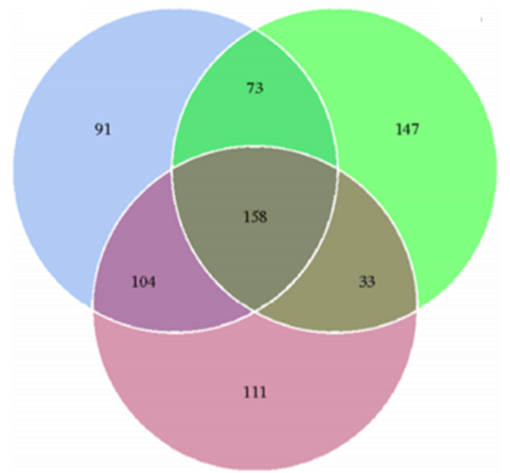Micro-plastics are a Vector for Transporting Harmful Bacteria.
Plastic waste entering the environment is an issue across the globe. Of particular concern, are small fragments of plastic known as microplastics that are extremely durable and can remain in the environment for several hundred years.
For aquatic ecosystems, this is a major problem as the salt in the ocean makes them even less prone to degradation. They are most commonly known for their effects on marine life when ingested and have been found in a wide range of biota from zooplankton, to mussels, to pelagic fish. Additionally, microplastics have the potential to provide a unique surface for marine biota to colonise, such as potentially harmful bacteria.
A study by Curren & Leong, (2018) reported the presence of microbial communities on microplastics in South East Asia. Microplastics were collected from three types of beaches along the coastline of Singapore, that were classed as pristine (little human activity), moderately populated (edge of a nature park with moderate human traffic) and highly populated (at a jetty of a sailing club). Samples were collected from two zones along the beaches - the high strand line and the low strand line. Microplastics could be grouped into five categories: fragments, fibres, foam, pellets, and film. The communities of bacteria on the surfaces of microplastic particles were then determined using high-throughput sequencing technologies.
Overall, microplastics varied in concentrations from 9.20-59.90 particles per kg of dry sand sediment, with the majority being identified as foam particles (55%) and fragments (35%). The total abundance of microplastics differed significantly across all three beaches with the heavily polluted and moderately polluted sites having more microplastics than the pristine beaches. There was no significant difference between the shore level zones. The microbial communities were primarily characterised by Proteobacteria and Bacteriodes and were distinct across sites (only a fraction being shared across all three sites). Hydrocarbon-degrading genera, such as Erythrobacter, were dominant in areas with heavy shipping and pollution. This is of notable importance as it demonstrates the potential for the discovery of useful organisms among waste matter. Potential pathogenic genera such as Vibrio and Arcobacter were also identified. These are of concern as members of the genus Vibrio are known to be associated with coral bleaching and disease and can also cause wound infections in humans and become life threatening. Members from the genus Arcobacter are pathogenic and have been implicated as a causative agent of gastrointestinal disease.Overall, this study supports previous evidence from other parts of the world that microplastic abundance differs according to anthropogenic activity. In addition, microplastics are a rich habitat for the colonisation of a wide range of bacterial taxa, including bioremediating bacteria and potentially putative pathogens. This highlights how microplastics are not just an issue of waste but could affect human health and ocean system stability.
References:
Barnes, D.K., Galgani, F., Thompson, R.C., Barlaz, M. (2009) Accumulation and fragmentation of plastic debris in global environments. Philos. Trans. R. Soc. Lond. B: Biol. Sci. 364 (1526), 1985–1998.
Curren, E. & Leong, S.C.Y. (2018) Profiles of bacterial assemblages from microplastics of tropical coastal environments. Science of the total environment. 655: 313-320.
Kayman, T., Abay, S., Hizlisoy, H., Atabay, H.İ., Diker, K.S., Aydin, F. (2012) Emerging pathogen Arcobacter spp. in acute gastroenteritis: molecular identification, antibiotic susceptibilities and genotyping of the isolated arcobacters. J. Med. Microbiol. 61 (10), 1439–1444.
Oliver, J.D. (2005) Wound infections caused by Vibrio vulnificus and other marine bacteria. Epidemiol. Infect. 133 (3), 383–391
Thompson, F.L., Thompson, C.C., Naser, S., Hoste, B., Vandemeulebroecke, K., Munn, C., Bourne, D., Swings, J.,(2005) Photobacterium rosenbergii sp. nov. and Enterovibrio coralii sp. nov., vibrios associated with coral bleaching. Int. J. Syst. Evol. Microbiol. 55 (2) 913–917
SHARE THIS ARTICLE















